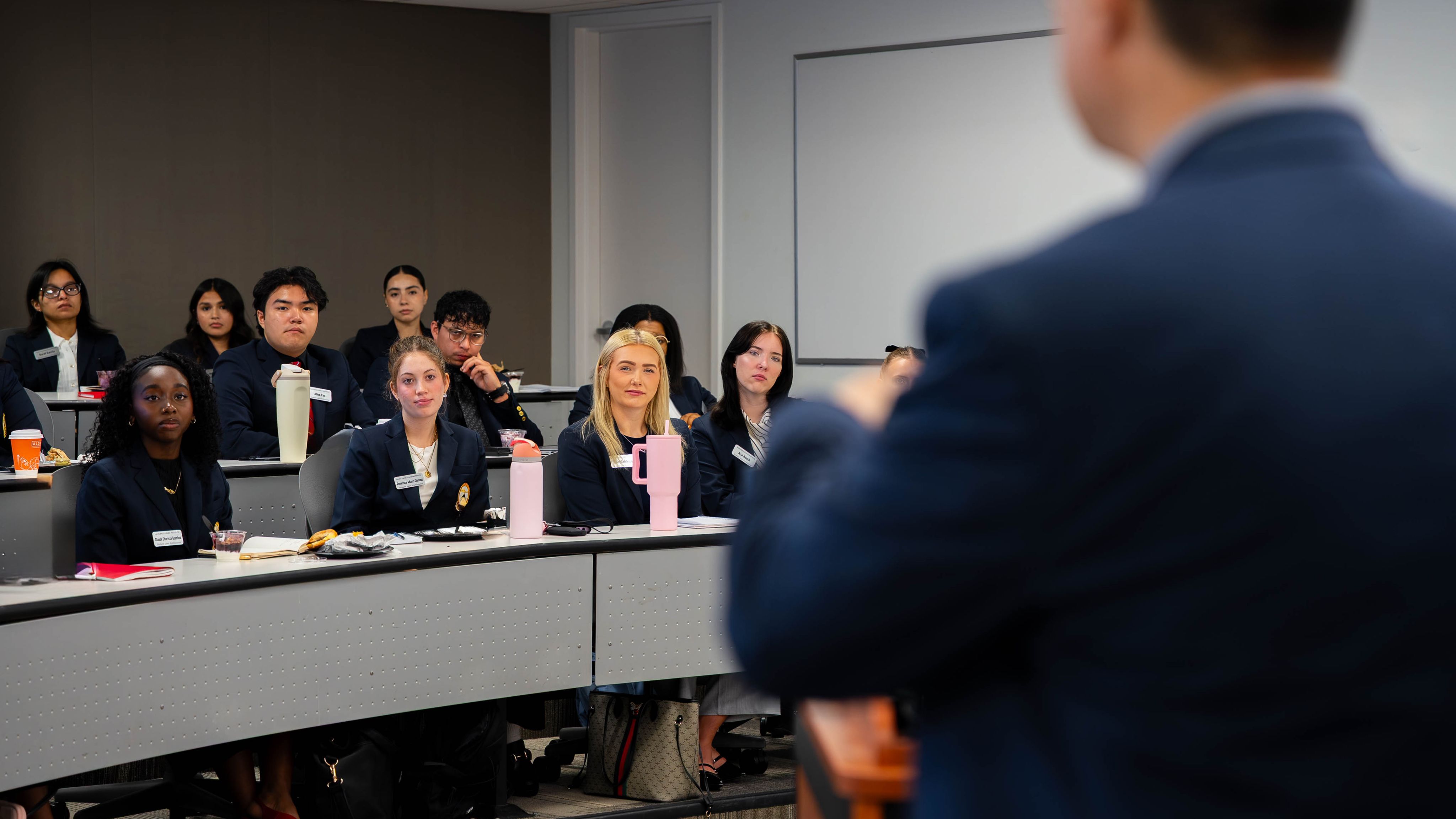Interviewing With AI
PES Adds New Technology to Classrooms, Curriculum
Students in the Program for Excellence in Selling (PES) are starting the school year with an upgrade, as the C. T. Bauer College of Business continues embracing new technology.
Over the summer, new screens and systems have been installed in PES classrooms, similar to existing technology in other Classroom & Business Building and Melcher Hall classrooms. The new technology is hybrid-friendly and allows guests to virtually integrate into the room with ease.
“We live in a digital age where you have meetings with colleagues or team members all across the world in different time zones,” Senior Professor of Practice Amy Vandaveer Novak said. “Being able to understand the etiquette around it, the importance of it and how to conference in is just part of business acumen today.”
The new technology makes the classrooms more accessible for guests, Vandaveer Novak said, which gives students the benefit of meeting people who otherwise would be out of reach.
“It gives easy access to people who are in different parts of the city or the country,” she said. “They can come in and provide knowledge and information to students without having to fight Houston traffic, worrying about parking or walking across campus.”
New artificial intelligence tools are now also incorporated in the program’s “Personal Branding” course. The class, which teaches students how to sell themselves, has always implemented mock interviews with partner representatives. As the course continued to grow, the interviews became a bigger strain on resources, leading Vandaveer Novak to find a technological solution.
Through an AI role play software called Second Nature, she built out networking, career fair, interview and job negotiation scenarios for students to practice with.
“Historically they only got one mock interview,” Vandaveer Novak said. “Now we're able to build in all these different simulations that students can get access to and practice throughout the whole semester. I think access to practicing these skills is really going to benefit them where before we didn’t have the bandwidth to provide the opportunity to practice.”
Bauer faculty first started using Second Nature in the Spring 2024 semester in “Professional Selling,” a core curriculum course with 1,350 students each fall and spring. After seeing positive results in that course, the software was also implemented in the “Digital Sales” and “Sales Management” courses.
The AI gives students immediate objective feedback on their performance, Associate Professor Johannes Habel explained. With this standardized criteria and scoring, he said there are significant effects on student learning.
“What we see is that students practice repeatedly,” Habel said. “Some of them practice 10, 20, 30 times, and we can see their scores improve and improve and improve, and they gain confidence in the process.”
As AI continues to become more commonplace, Vandaveer Novak said it’s critical for students to know how to use the tool, while still being the ones driving it with their own brain.
“They can't be deer in the headlights,” she said. “Our job is to keep up with the times so that students get their return on the investment of their education.”
Habel said they ran analysis on PES students to see how they perform in real sales projects that they run in real life. They found the more often the students practice with the stimulator and improve in role plays, the better they did in the real-life selling project.
Habel and Vandaveer Novak are now involved with running this type of analysis with a company outside of the university setting. They are researching how the role play software impacts sales representatives and their organization based on the data.

